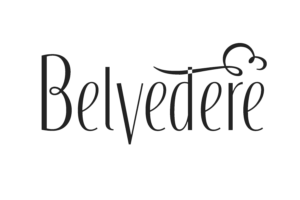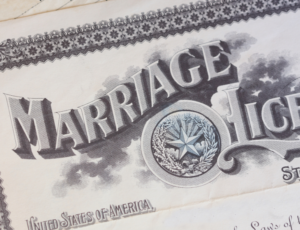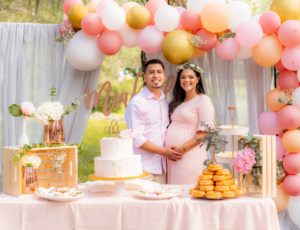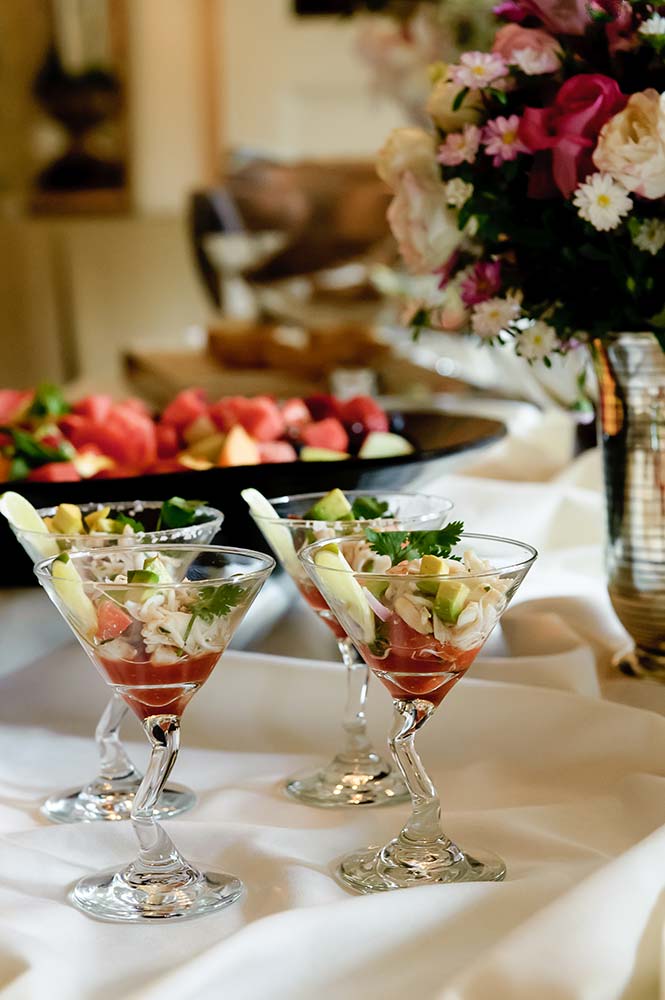 When you are planning any type of catered event, whether professional or personal, you rely on the expertise of your caterer to help you design the perfect menu. But there is more to a catered menu than simply choosing the right entrees and deserts.
When you are planning any type of catered event, whether professional or personal, you rely on the expertise of your caterer to help you design the perfect menu. But there is more to a catered menu than simply choosing the right entrees and deserts.
You also have to decide how much food you will need. You want to ensure that there is plenty of food and drink for your guests, but you also want to keep that event budget under control. Now, an experienced caterer should be able to help you figure out just how much food and drink will be needed for your event.
If you’re keeping an eye on your event budget, you will want to have a basic understanding of how much food and drink you will need for a given event. So we’ve prepared a simple cheat sheet with expert catering tips to help you keep your caterer honest, and your food costs under control.
First Things First
When gauging food amounts for your event, you will first have to ask yourself a few basic questions:
- What type of event are you planning?
- How many guests will be attending?
- How long will the event last?
The answers to these basic questions will help you to gauge the amount of food and drink you will need over the course of the event. For instance, a business cocktail party that lasts a few hours will require much less food than an all day marketing event. Once you have fully defined your event, you can begin to work with your caterer to figure out how much food you will need, and then go on to design your menu.
Hors d’oeuvres and Appetizers
Hors d’oeuvres and appetizers may form part, or all, of your menu depending on the type of event you are staging. The following should help you gauge the amount of appetizers you will need for any given event.
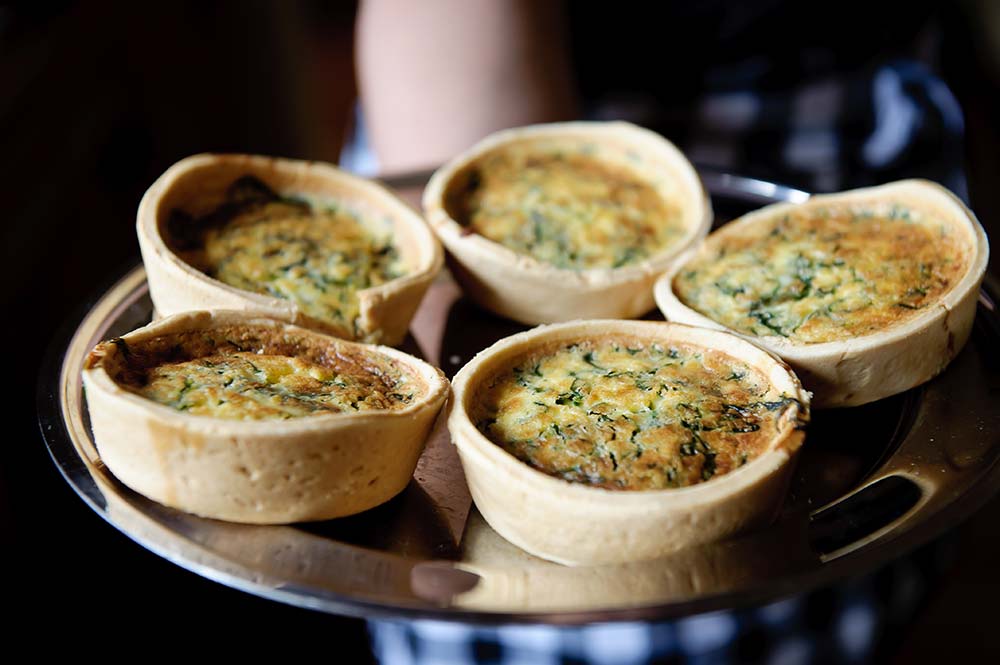
- Cocktail Parties – For a simple meet and greet with no dinner to follow plan on 10 to 15 appetizers per person. If service will be buffet style, bump the numbers up a bit as people tend to eat more when serving themselves.
- Mid Day Events – If you are planning a mid day event with a light lunch to follow, plan on 1 to 3 appetizers per guest.
- Evening Events – If your event is built around a sit down dinner, plan on 3 to 5 appetizers per guests with a lighter meal to follow.
Breakfast
It’s not unusual for business events and training seminars to be scheduled on a weekday morning. In which case you will want to serve some manner of breakfast for your attendees. Here’s a simple break down of what you will need for a breakfast menu.
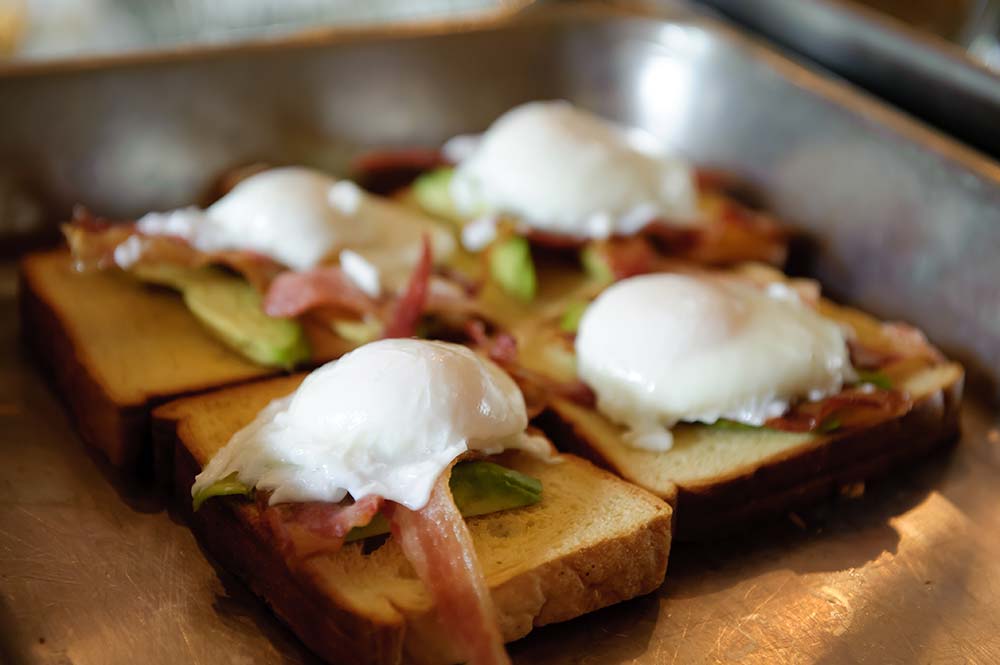
- Beverages – Plan on an average of two beverages (coffee, tea, fruit juice, etc) per person.
- Main Entrees – A single 5 oz serving per person.
- Sides – Allow for the choice of two sides per personal
- Pastries – If you are serving pastries as an alternative to a full breakfast, allow for a minimum of two pastries per guest.
Lunch
Again, afternoon luncheons are perfect for corporate training seminars and less intense business gatherings. A light lunch helps to break up the day, and gives your guests the chance to refresh and refuel themselves. If you are planning a business luncheon, use the following guide to estimate your food needs.
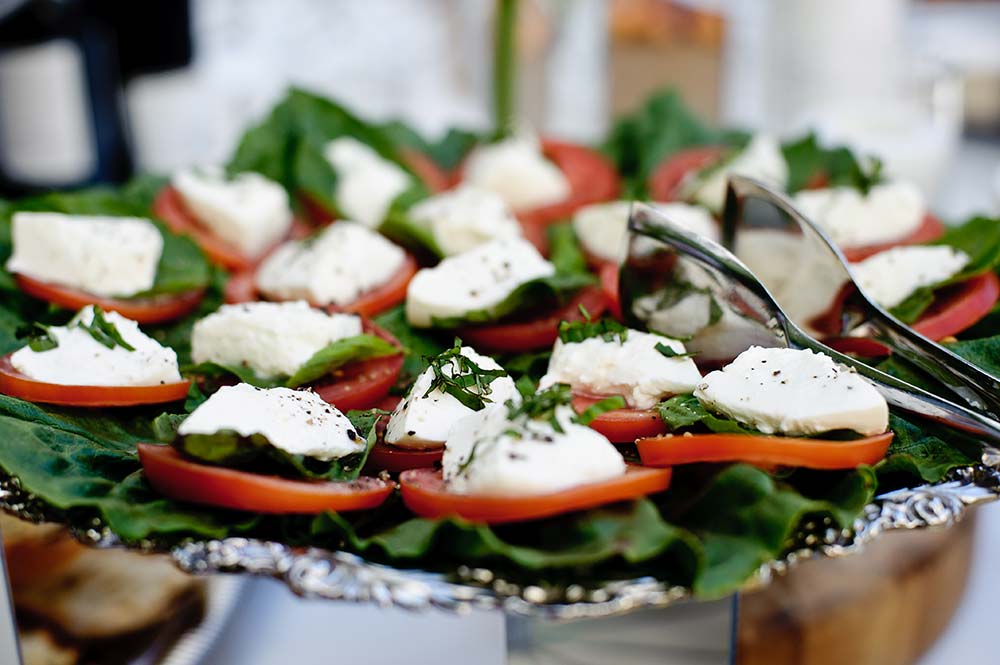
- Appetizers – 2 to 4 per person
- Main Entrees – A single 5 oz entree per person.
- Sides – 2 to 3 sides per guest, including at least one starch and one vegetable
- Beverages – 1 to 2 beverages (coffee, soda, iced tea, etc) per person during the afternoon meal
Dinner
Whether it’s an all day event, or an elegant dinner party, a sit down dinner typically requires a greater amount of food and drink. Remember, you are not only serving a meal, but are also supply drinks and appetizers prior to dinner.
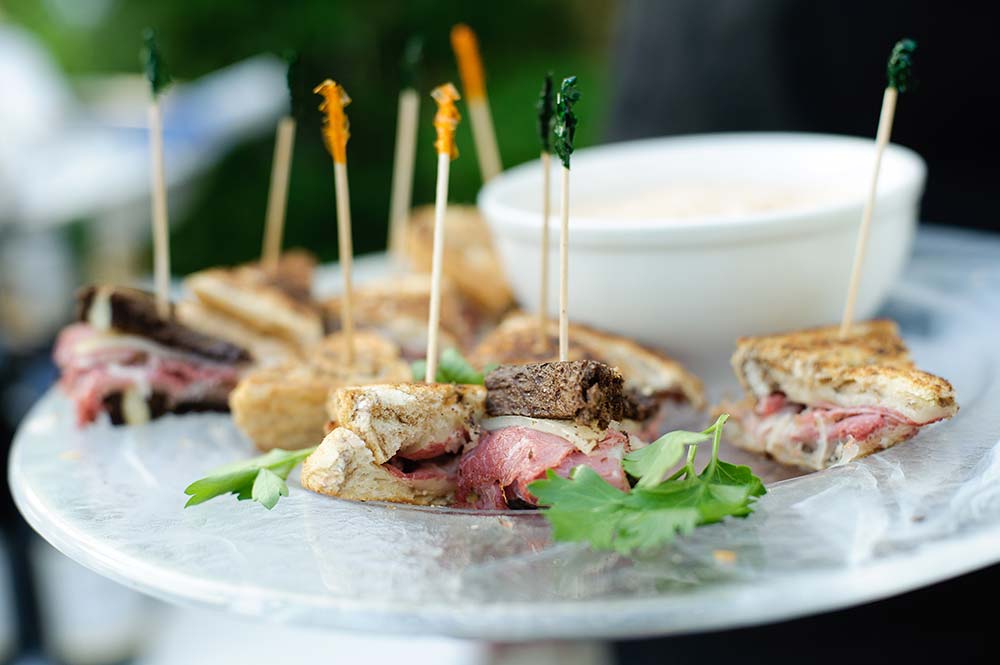
- Appetizers – Plan on 3 to 5 hors d’oeuvres per person.
- Soup and Salad – Each guest should have a starter, either soup or salad.
- Main Course – Plan on a single main entree, up to 7 oz, for each guest.
- Sides – Plan on a selection of three sides, including one starch and one vegetable, per person.
- Beverages – 2 to 3 beverages (beer, wine, water, soft drinks) per person.
- Desert – Plan on 2 servings per guest. Some will come back for seconds on sweets, while others will pass on desert altogether.
While you should always rely on the advice of your catering company, it never hurts to have a rough idea of catering procedures to ensure that costs are kept under control and that there is a minimum food wastage. Remember, too little food and drink can be embarrassing, but too much is money wasted.
We would love to be catering company! Please visit our catering services page to learn more about our services.
